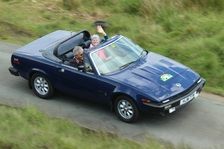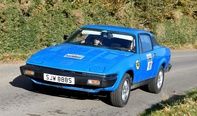Postby Hasbeen » 25 Aug 2009 23:53
Middle, I am inclined to agree with you, about the brake hose. My experience is that it is the return of pressure where these hoses start to give problems, first.
Usually the first indication of a problem is that the brake starts to drag, & get hot, due to poor return of pressure. This is reasonable, as the pressure applied by the master cylinder is much higher, than that applied to the wheel cylinder, by the shoes return spring. This may still not work with vacume bleeding.
I have not had a problem with no fluid comming from the rear, but I have always found a 7 requires bleeding at least 2, & usually 3 times, over a couple of runs, & a few days, before a nice firm peddle is achieved.
This is strangely, still the case with my 8. Strangely, since the only bits of it't original brake system are the pipe & the reducing valve.
This car has Volvo booster, master cylinder & front callipers, with Nissan rear discs, & calipers. Although the brakes worked well, from the start, it still took 3 bleeds to get a fully firm peddle.
This tends to suggest that the blame for the any idiosyncrasies in the 7s system, can be aimed at the pressure reducing valve.
Can you get any fluid at the cylinders, by loosening the union nuts a couple of turns, at each cylinder?
Hasbeen


